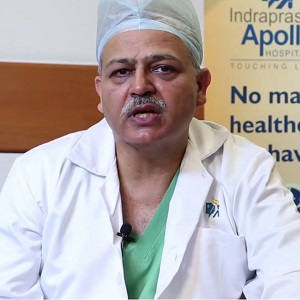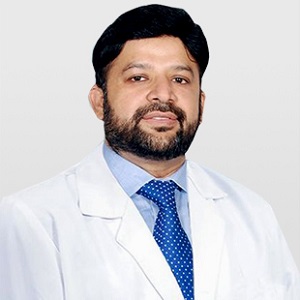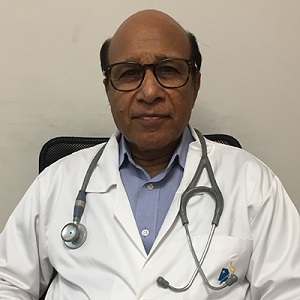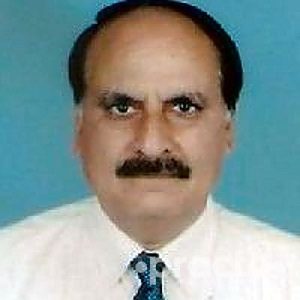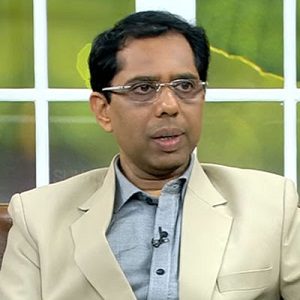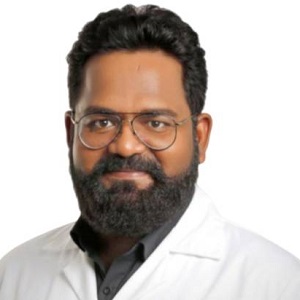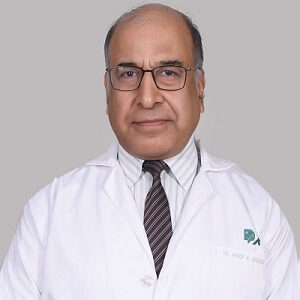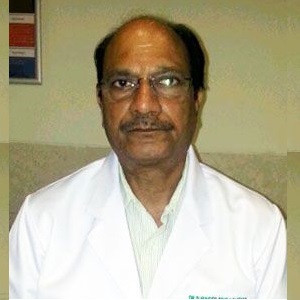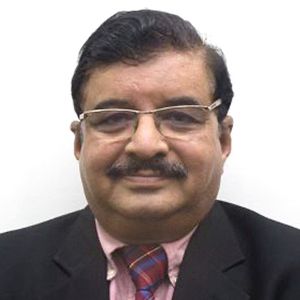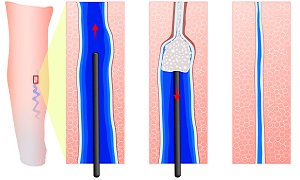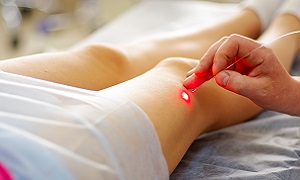Best Varicose Veins Surgery Doctors in India
- Vascular Surgeon, New Delhi, India
- Over 35 years’ experience
Profile Highlights:
- Dr. Rakesh Mahajan is one of the best Vascular Surgeons in India. He has an experience of 35 years.
- He is a member of the Vascular Society of India and other eminent societies.
- Dr. Rakesh Mahajan is experienced in the diagnosis and treatment of vascular and related disorders.
- He qualified for the prestigious Intercollegiate Exam in the UK and was awarded a CCST certificate.
- Vascular & Endovascular Surgeon, New Delhi, India
- Over 18 years’ experience
Profile Highlights:
- Dr. Suhail Naseem Bukhari is a well-known Vascular Surgeon with an experience of 18 years.
- He is proficient in carrying out procedures such as Spinal and Cerebral Tumor Embolization, Angioplasty and Stenting, Embolization for Fibroid, Head, and Neck Tumour Embolization and Acute Stroke Thrombectomy, etc.
- Vascular Surgeon, New Delhi, India
- Over 35 years’ experience
Profile Highlights:
- Dr. Jaisom Chopra is the epitome of all the Vascular Surgeons in India as well as abroad.
- He has performed more than 7000 surgeries in his lifetime.
- Dr. Chopra’s chief field of interest lies in surgeries related to varicose veins.
- Vascular Surgeon, New Delhi, India
- Over 23 years’ experience
Profile Highlights:
- Dr. K K Pandey is one of the best Vascular and Endovascular surgeons in India; currently working with Indraprastha Apollo Hospitals, New Delhi as a consultant.
- He has experience of over 2 decades in vascular surgery. Dr. Pandey is trained to diagnose and manage various simpler to the life-threatening health issues.
- His specialization includes diabetic foot treatment, Varicose Veins Treatment & Surgery, Venous Angioplasty & Stenting, MV replacement, chest tumors, and Sclerotherapy.
- Dr. Pandey has a couple of book publications, research, and award for excellent surgical skills to his credit.
- Vascular Surgeon, Chennai, India
- Over 30 years’ experience
Profile Highlights:
- Dr. V Balaji is currently working in Chennai, Tamil Nadu as an expert Vascular Surgeon.
- He has treated numerous people with chronic and acute problems, which include Pediatric and geriatric populations too.
- He is currently in touch with a fellowship related to endo Vascular Surgery and pancreas transplantation.
- Vascular Surgeon, Gurugram, India
- Over 20 years’ experience
Profile Highlights:
- Dr. Himanshu Verma has been a well-known vascular surgeon for the last two decades. He worked in the USA (Mayo) for several years apart from his decade of experience in the top medical centers of India.
- He has performed innumerable surgeries throughout his life including 3000 complex AV Fistula for Hemodialysis Patients.
- Dr. Himanshu Verma is one of those first persons, who nurtured the idea of performing vascular surgeries under Local Anaesthesia. This way numerous patients across the globe can walk away from the Post Anaesthesia complications.
- Cardiothoracic Surgeon and Vascular Surgeon, New Delhi, India
- Over 42 years’ experience
Profile Highlights:
- Dr. Anoop K Ganjoo is one of the best cardiologists & cardiothoracic surgeons in India with a total experience of 42 years.
- Dr. Ganjoo has a rich experience of over two decades in several complicated procedures, like Mitral valve repair and replacement, Peripheral and Coronary angiography & angioplasty, vascular surgery, ICD, diffuse coronary artery disease, Pacemaker, Radiofrequency ablation of arrhythmias, adult Cardiothoracic Surgery, CRT implantation, Balloon valvuloplasty, and PDA device closure.
- Vascular Surgeon, Gurugram, India
- Over 38 years’ experience
Profile Highlights:
- Dr. Surinder Singh Khatana is an eminent name in the country for conducting more than 1000 vascular surgeries to date.
- He has been the chief cardiac surgeon at various prestigious hospitals both nationally and internationally.
- He has served in the Indian Army for 30 years.
- Vascular Surgeon, New Delhi, India
- Over 35 years’ experience
Profile Highlights:
- Dr. (Col) Kumud Rai belongs to the top class of Vascular Surgeons in India. He has more than 25 years of experience in being a Vascular Surgeon.
- Dr. Kumud Rai has been a Tutor for the Royal College of Surgeons in the UK and an examiner in several MCHs.
- Dr. Rai has spent a major part of his life serving the Indian Army in both educational and professional sectors.
Best Varicose Veins Surgery Hospitals in India
Indraprastha Apollo Hospital, New Delhi
- City: New Delhi, India
Hospital Highlights:
- Indraprastha Apollo Hospital is a 700-bedded multispecialty hospital in the heart of the capital of India. It is a part of Apollo Hospital group, one of India’s most reputed healthcare chains. Indraprastha Apollo Hospital has been accredited by Joint Commission International, making it the first internationally accredited hospital in the country in 2005.
- There are 52 specialties in the hospital with one of the best cardiology centers in the country. The hospital is also equipped with State of the art infrastructure facilities with the largest Sleep Lab in Asia and the largest number of ICU bed facilities in India.
- The hospital also has one of the largest dialysis units in India along with a dedicated Bone Marrow Transplant unit.
- The latest and highly advanced technologies that are installed in the hospital include Da Vinci Robotic Surgery System, PET-MR, PET-CT, Cobalt-based HDR Brachytherapy, Brain Lab Navigation System, Tilting MRI, Portable CT scanner, 3 Tesla MRI, 128 Slice CT scanner, DSA Lab, Endosonography, Hyperbaric Chamber and Fibro scan.
Fortis Memorial Research Institute, Gurugram
- City: Gurugram, India
Hospital Highlights:
- Fortis Memorial Research Institute is a multi-super-specialty, quaternary care hospital with 1000 beds. The hospital comprises reputed clinicians, and international faculty and is also equipped with cutting-edge technology. The hospital is a part of Fortis Healthcare Limited, a reputed chain of private hospitals in India.
- It is a NABH-accredited hospital that is spread across 11 acres of land and has a capacity of 1000 beds. The hospital has 55 specialties and is one of the premier health care centers in the Asia Pacific region popularly known as “the Mecca of Healthcare”.
- The hospital has 260 diagnostic centers and is also equipped with the latest and advanced techniques that include 3 Telsa which is the world’s first Digital MRI technology. The hospital also has world-class Radiation Therapy techniques which have been developed by leading technology experts from Elekta and Brain Lab.
Apollo Hospital, Chennai
- City: Chennai, India
Hospital Highlights:
- Apollo Hospitals, Chennai, is one of the best hospitals for heart care in India. Over the years, Apollo has expanded all over India, as a healthcare chain.
- India’s first ‘Only Pancreas’ transplant was performed in Apollo Hospital. The hospital is known for successfully performing Asia’s first en-bloc combined heart and liver transplant, and over the years, it has attained a remarkable achievement in the global healthcare space. Around 3-4 organ transplants are performed in the hospital per day.
- Equipped with over 500 beds, this hospital in Chennai was established in 1983 and since then has been among the most preferred hospital for patients from all over the world.
- The hospital holds accreditation of the NABH and JCI and is the first hospital in India to be ISO 9001 and ISO 14001 certified. It is also the first South Indian Hospital to receive subsequent reaccreditation from the JCI USA 4 times.
Medanta-The Medicity, Gurgaon
- City: Gurugram, India
Hospital Highlights:
- One of India’s best and largest multi-specialty hospitals, Medanta was built with the aim to bring India to the highest standards of medical care. The hospital has been providing the best medical services to its patients, since its inception, with care, commitment, and compassion.
- Equipped with 1250 beds, the hospital was founded by Dr. Naresh Trehan in the year 2009 with an aim to provide the best medical care at affordable costs. The hospital is spread across 43 acres and includes 45 operation theatres and 350 beds dedicated solely to ICU. The hospital includes over 800 doctors, and more than 22 specialty departments and has a dedicated floor for individual specialty in order to offer the best services under one roof.
- The hospital is considered one of the premier institutes in India for Cardiac Care and includes staffs and members of high caliber. The hospital has 6 distinct centers of excellence.
Max Super Specialty Hospital, New Delhi
- City: New Delhi, India
Hospital Highlights:
- One of the well-regarded providers in India committed to the highest standards of clinical excellence and patient care, Max Super Specialty Hospital is a part of Max Healthcare, which is the second-largest healthcare chain in India. Regarded as one of the most well-regarded healthcare providers in the country, Max Super Specialty Hospital is committed to the highest standards of clinical excellence as well as patient care. The hospital is also equipped with the latest technology as well as cutting-edge research. The hospital is known to deliver and ensure the highest level of patient care.
- The hospital has more than 500 beds and offers treatment for over 35 specialties. The hospital also holds the credit of having installed the first Brain Suite in Asia. This is a highly advanced Neurosurgical machine that allows MRI to be taken while surgery is ongoing.
- Other advanced and latest technologies are also installed in the hospital such as the 1.5 Tesla MRI machine, 64 Slice CT Angiography, 4D ECHO, LINAC, and 3.5T MRI machine.
Artemis Hospital, Gurugram
- City: Gurugram, India
Hospital Highlights:
- One of the most well-known hospitals in the Delhi NCR, Artemis Hospital is the first hospital in Gurugram to get accredited by the Joint Commission International.
- With more than 40 specialties, the hospital has been designed to be one of the most technically advanced hospitals in the country, with the best medical and surgical health care. The hospital has eleven special and dedicated centers, for Heart, Cancer, Neurosciences, etc.
- The latest technologies in the hospital include Endovascular Hybrid Operating Suite and Flat panel Cath Labs for the cardiovascular department, 3 Tesla MRI, 16 slice PET CT, 64 Slice Cardiac CT Scan, HDR Brachytherapy, and highly advanced Image Guided Radiation Therapy techniques (LINAC) are installed in the hospital.
- The hospital has won several awards as well, since its inception.
BLK Max Super Specialty Hospital, New Delhi
- City: New Delhi, India
Hospital Highlights:
- Equipped with 650 beds, BLK Superspecialty Hospital is the largest stand-alone private sector hospital in Delhi.
- With over 1500 healthcare providers and 150 globally renowned super specialists, the hospital is one of Asia’s largest Bone Marrow Transplant Centres. The hospital is known for having some of the best cancer doctors in the country.
- The hospital is NABH and NABL accredited and was inaugurated by the first Prime Minister of India. Pt. Jawahar Lal Nehru.
Gleneagles Global Hospitals, Chennai
- City: Chennai, India
Hospital Highlights:
- Established in 1999, Gleneagles Global Hospital, Chennai, is one of the top healthcare facilities in Southern India. It is part of the Gleneagles Hospital Chain, which is the fourth largest healthcare chain in the country. The hospital specializes in multi-organ transplants of kidneys, liver, lungs, heart, etc.
- The hospital has an excellent infrastructure and state-of-the-art lab and equipment set-up. The hospital boasts cutting-edge technologies, a highly skilled team of doctors and surgeons, and trained support staff. Located in Perumbakam, Chennai, it is one of India’s premier health care destinations. The hospital has performed some of the most complex surgical and clinical procedures in India including multi-organ transplantations.
- The hospital’s lung transplantation program is one of the best in the country. The hospital is known for having performed India’s first single lung transplant and first minimal invasive lung transplant. It is also the only Indian hospital to be associated with King’s College Hospital, London, United Kingdom for liver transplantations.
Fortis Hospital, Mulund, Mumbai
- City: Mumbai, India
Hospital Highlights:
- Fortis Hospital in Mulund is a 315-bed multi-speciality tertiary care hospital with five JCI accreditations that offers a wide variety of diagnostic and therapeutic services. The Fortis Hospital in Mulund delivers patient-centred treatment with cutting-edge technology, highly skilled and experienced surgeons, and paramedical staff.
- This institution houses Maharashtra’s largest multi-organ transplant centre. It is also the first heart transplant centre in western India to conduct 100 or more consecutive heart transplants in under four years. It is the only hospital in the city to have multi-organ transplants and has handled the youngest patient for angioplasty. Fortis Hospital Mulund now boasts the first advanced surgical robot in central Mumbai.
- Cardiology and heart surgery, urology, nephrology, neurosciences, orthopaedics, digestive care, emergency and critical care, and maternity care are among the services provided by the hospital.
Kokilaben Dhirubhai Ambani Hospital, Mumbai
- City: Mumbai, India
Hospital Highlights:
- Kokilaben Dhirubhai Ambani Hospital, Named after the wife of Indian industrialist Dhirubhai Ambani, the founder of Reliance Industries, this is one of the top hospitals in Mumbai. This 750-bed multi-specialty hospital became operational in 2009. Known as one of India’s most advanced tertiary care facilities, the hospital is designed to raise India’s global standing as a healthcare hub, with an emphasis on excellence in clinical services.
- Kokilaben Dhirubhai Ambani Hospital uses Protocol and Care Pathway based treatment models to ensure the best outcomes for patients.
- The hospital represents a confluence of top-notch talent, cutting-edge technology, state-of-the-art infrastructure, and, most importantly commitment.
- The hospital also holds the accreditation of the NABH, NABL, CAP, and JCI.
- The hospital has been recognized as the No. 1 Multispecialty Hospital in Mumbai and the West Zone for the fifth year in a row in 2020 by The Week.
Varicose Veins
Varicose veins are twisted and swollen veins that usually develop in the legs and feet; appear just below the surface of the skin. Varicose veins appear as dark purple or bluish in color.
For most people with varicose veins, it could only be a cosmetic concern. However, some patients develop more serious issues like itching, aching, swelling, cramping, discoloration and other discomfort and hence, need medical intervention.
Causes
The veins are an essential part of the blood circulation system in the body. The heart pumps blood into all the tissues in the body through the arteries. The blood is then collected by the veins and sent back to the heart for purification. A minuscule valve in the front of the vein opens and close to prevent the outflow of blood once absorbed from the tissues. Varicose veins develops when the valve in the veins fails to function.
Signs & symptoms of Varicose Veins
- Pain & swelling in the legs & feet.
- Muscle cramping in the lower legs.
- Itching around one or more of the veins
- Skin discoloration around affected veins.
Spider veins & Varicose veins
Varicose and Spider Veins are not the same.
Varicose veins are large, raised, swollen blood vessels that twist and turn. They usually develop in the leg and can be seen through the skin. Spider veins, on the other hand, are smaller, red, purple & blue vessels that also twist and turn. They can appear on legs, chest or face.
Causes & risk factors of Varicose Veins
- Having family history of varicose veins.
- The risk of varicose veins increases with age.
- Obesity
- Sitting & standing for long periods of time.
- Damaged valves can cause varicose veins.
- Excessive pressure on the legs or abdomen
Treatment options for Varicose Veins
Self Care
Before visiting the doctor, you may try if the following self-care methods help.
- Exercise- It can pump blood and open blocked veins or give some relief.
- Lose weight- Pressure of extra weight on legs worsens varicose veins
- Avoid wearing tight clothes
- Elevate legs when sitting.
- Keep changing position when standing or sitting for long periods.
Compression stockings
Who treats Varicose Veins?
Varicose veins are treated by: Vascular surgeons. However, it can also be treated by Dermatologists and Cosmetic Surgeons (for milder versions).
Medical Interventions:
However, if the aforesaid methods don’t ease the pain & discomfort of your varicose veins, then you should see a specialist.
Foam sclerotherapy
Foam sclerotherapy is a minimally invasive technique to eliminate varicose veins. The procedure involves injecting a foam sclerosant in a blood vessel to close it. The blood reroutes itself through healthy veins, restoring more normal blood flow. The varicose vein gradually fades away in some time. The procedure doesn’t require anesthesia and can be done at doctor’s office/cabin.
Endovenous laser therapy
Endovenous laser treatment is a non-invasive ultrasound-guided technique used for treating varicose veins using laser energy. In laser treatment, strong bursts of light are sent to the varicose veins, which makes the varicose veins slowly fade and disappear. The procedure doesn’t involve any needle or incision and is painless.
Radiofrequency Ablation
Radiofrequency Ablation (RFA) is a minimally invasive treatment method for treating varicose veins. In RFA, radiofrequency energy is passed through a catheter inside the vein. The heart of radiofrequency energy heats and destroys the wall of the vein and closes the vein. The procedure is done with mild sedative or local anesthesia. You will be recommended to wear compression stockings for about a week after RFA. Radiofrequency Ablation is generally more preferred method of treatment in case of large veins.
Surgery
Surgical approaches to treating Varicose Veins include:
High ligation and vein stripping
In High ligation and vein stripping, a vein is tied off before it joins the deep vein and the vein is removed through small incisions. Removing the vein wont hamper blood circulation as veins deeper would take care of blood. It is done on OPD basis and doesn’t normally require hospitalization.
Ambulatory phlebectomty
In ambulatory phlebectomty, the vascular surgeon removes varicose veins through small incisions in the leg.
Endoscopic Vein Surgery
Endoscopic vein surgery is generally done in advanced cases where other methods didn’t work or in cases of leg ulcers. In this method, an endoscope(a camera mounted surgical device) is inserted to remove the veins through small incisions. Like other procedures, this procedure too, is normally done o0n OPD basis.

